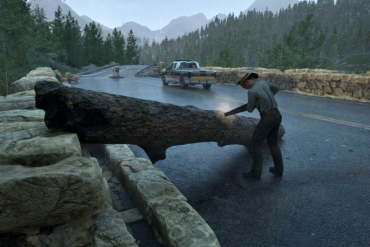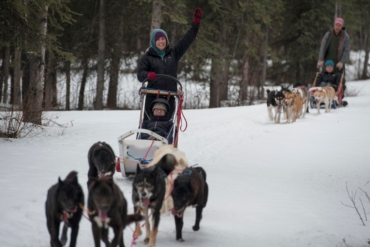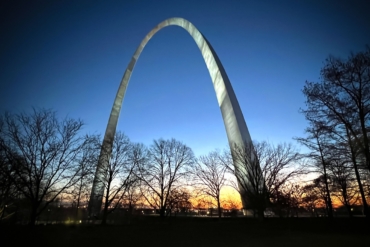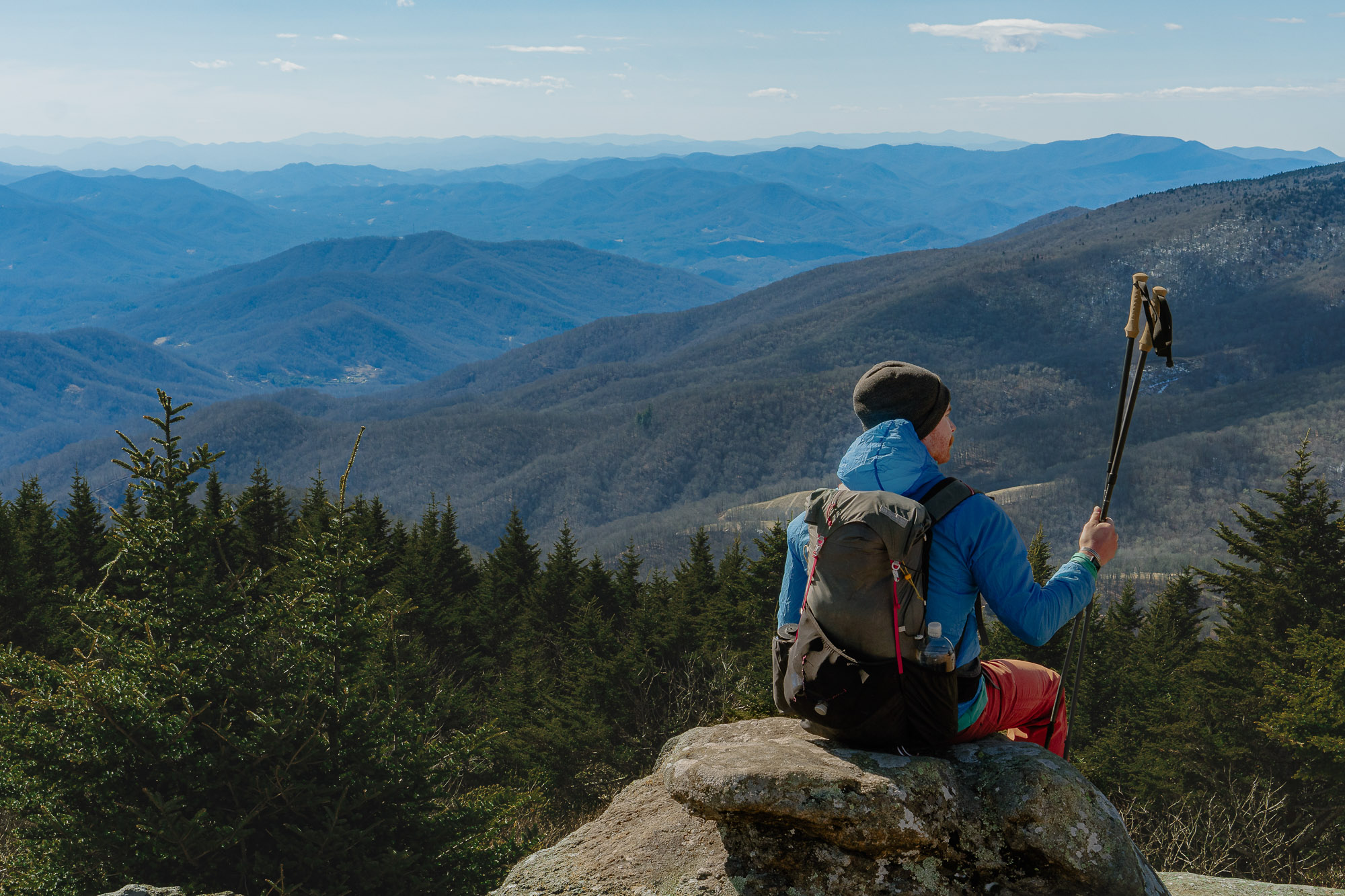John Reiber, of Alma, Colo., owns two 14,000-foot peaks along the Decalibron Loop surrounding the town — peaks that have attracted around 25,000 visitors a year.
And he will now close them to public access due to legal concerns.
Reiber has spent years working with the town of Alma, the Forest Service, and Colorado hiking groups to keep the trails on his land to Mt. Democrat and Mt. Lincoln open to visitors. That’s benefited the hordes of hikers who take on the popular Decalibron Loop every year.
Now, though, the door has slammed shut. When the Colorado Senate Judiciary Committee killed Senate Bill 103 on March 1, it extinguished the hopes of any state landowner seeking more robust regulatory protections against recreational visitors who might sue them for damages they incur on their property.
“I have been advised by my own attorneys on several occasions that I am rolling the dice by leaving these peaks open,” Reiber told The Colorado Sun. “Now, I do plan to close the 14ers for access. Without any regulatory support … I can no longer take on the level of risk in case someone gets hurt and wants to sue me.”
However, one legal group testifying against SB103 pointed out that little precedent exists for landowners being held liable under Colorado’s Recreational Use Statute, which the bill sought to amend.
As written, the civil attorney group said, the statute actually protects landowners from damages recreators claim, except in cases of known or malicious negligence.
Unfortunately, as Reiber pointed out, the statute’s definition of “recreational” is so broad that insurers still hesitate to cover landowners like him.
“It’s very far-reaching,” Reiber said. “If you look at the language, the ‘including but not limited to’ clause is very long. There are a lot of activities that aren’t specific to 14,000 feet at all — they’re just everyday landowner liability issues.”
Popular, Lucrative Trail Takes a Hit
Reiber’s decision effectively shuts down the Decalibron Loop, a 7-mile trail characterized by its capacity to make four 14ers (Democrat, Lincoln, Bross, and Cameron) accessible at once via relatively easy access.
Previously, the loop constituted a big tourist draw to the area.
The Colorado Mountain Club (CMC) helped draft SB103 and performed stewardship work on the trail. Policy Director Nicole Budine said a survey the group conducted there showed an increasing percentage of out-of-state hikers in 2022.
“The ability to summit four 14ers is really the main attraction of the loop, so I doubt it will see nearly as many visitors,” Budine said, now that two are off limits to the public. “Decalibron Loop is one of the biggest recreational attractions in the area.”
Research by the Colorado Fourteeners Initiative (CFI) bears out Budine’s assessment. Hiker numbers plummeted when Reiber previously closed Mt. Democrat and Mt. Lincoln from May 1 to Aug. 6, 2021, for liability concerns. The CFI found the area saw between 40-65% fewer hikers that year than in any year since 2017.
The group estimated the communities in the area took a $5 million hit from the 2021 closure, according to The Sun.
SB103 Details and Debate
SB103 sought to amend Colorado’s Recreational Use Statute. Sponsored by Sen. Mark Baisley, it eventually garnered support from a wide array of organizations. Groups like the American Alpine Club and Continental Divide Trail Association signed their support alongside the Rocky Mountain Farmers Union and even the Colorado Springs Utilities department.
Lawmakers first proposed a version of it in 2019, in the wake of a $7.3 million settlement paid out by the federal government. That case was brought by a mountain biker who suffered injuries in 2008 while riding on the Air Force Academy campus (just north of Colorado Springs).
A federal appeals court concluded the Air Force Academy knew about the condition of the trail that injured the mountain biker but did nothing to warn visitors.
As written, the Recreational Use Statute does not provide legal immunity to landowners if they show “willful or malicious failure to guard or warn against a known dangerous condition.”
Opposition to SB103
SB103 would have removed the exception for “willful” failure to warn, giving property owners protection in such cases. But importantly, it would have continued to enforce liability for “malicious” behavior.
The Colorado Trial Lawyers Association (CTLA) testified against SB103. The group’s executive director, Julie Whitacre, said that’s a critical distinction, and one of the main reasons her organization opposed the bill.
“The ‘willful’ failure is, the landowner knows about a giant hole in the middle of the trail and chooses not to warn anybody about it. Under ‘malicious,’ that same landowner would have not only needed to know about the hole, but then pushed the hiker into it.”
That would be a criminal act, Whitacre said, and property owners can’t get insurance protection in those cases under Colorado law anyway.
She went on to say that there’s a reason the Air Force Academy incident was the only time in the statute’s 26-year history that a landowner was found liable.
“All the landowner has to do is prove that they tried [to notify visitors of the danger], or prove they didn’t know the danger. If they can prove either one of those things, they’re off scot-free,” Whitacre said.
In the Air Force Academy case, an employee discovered a sinkhole in the trail on the property, photographed it, and shared it via email — but, he stated in his deposition, no one had remediated the damage or put up signage by the time of the incident.
Because the mountain biker got hurt due to lack of signage even though proof existed that the Academy knew about the hazard, “willful” failure to notify prevailed. In terms of case history, Whitacre said, those are rare conditions.
Kari Jones Dulin, the CTLA attorney who testified against SB103, told the committee that its passage would “send a message to Coloradans and visitors alike that we don’t do anything and we don’t say anything when we know there are dangers that will harm you.”
Support for SB103
The Colorado Mountain Club argued the Air Force Academy case indicated that the writing in the statute was flawed.
“A lot of the focus was on the fact that there has only been the one case. But attorneys know, it only takes one case [to show a weakness in the law],” Budine said.
The CMC’s supporting testimony pointed out its Decalibron Loop survey showed hikers were obeying “no trespassing” signage, despite the fact that much of it showed vandalism. Budine said that pointed to a reason to give landowners more leeway. Hikers were generally obeying the rules, but landowners could potentially become liable if signage disappeared.
“Our concern is that without changes to the statute, potentially those landowners could be liable if the signage warning of a condition isn’t there — if they’re aware of that and they don’t fix it. We’d like to see landowners protected in situations like that, to encourage them to open their property for free,” Budine said.
Baisley accused the bill’s legal opponents of supporting it in pursuit of personal gain.
The three attorneys “are really after the opportunity to sue and make money. They all see blood in the water with the [Air Force Academy] ruling,” Baisley said, per The Sun.
A dozen landowners, lawyers, and other groups testified in support of the bill, The Sun said. But the judicial committee’s vote fell along party lines, 3-2, with the three Democratic members carrying the decision.
Landowner Speaks Up
Another key change SB103 would have made to the Recreational Use Statute was to narrow its definition of “recreation,” and give landowners more control over what activities they allowed and disallowed.
As of now, the statute reads: “‘Recreational purpose’ includes, but is not limited to, any sports or other recreational activity of whatever nature undertaken by a person while using the land.”
That broad parameter results in a list that’s understandably long and inclusive. Along with concerns over what could constitute “willful” negligence, Reiber’s insurance agent informed him he could no longer expect a policy that would help defend him against lawsuits from people injured on his land.
While Reiber knows that insurance companies could be more likely to cover him (and others like him) if the law offered better liability protection, he’s more focused on gaining control over the property he offers up for others to use for free.
“Nowhere in that statute does it give the owner the opportunity to say, ‘these are acceptable recreation activities and these are not.’ I’d like to be able to say, ‘take nothing but pictures, leave nothing but footprints.’ But starting fires, shooting automatic weapons or any other firearms — anything people could consider ‘sport’ — it becomes really hard to prohibit that under the statute,” Reiber said, citing legal counsel he’s received on the issue.
SB103 would have enabled Reiber and other property owners across Colorado to implement those and other restrictions, such as closures for seasonal wildlife migration or nesting.
The bill also would have given the statute a clause shielding landowners from damages claimed due to inherent danger — a concept the current document does not engage with at all.
Outlook: ‘Bigger’ Issue Than the Decalibron
Ultimately, Reiber sees few options to keep his land open as of now.
Reiber said he’s entertained the idea of waiver systems with his own attorneys and other landowners, but he doubts its practicality.
“A liability waiver could potentially help landowners feel reasonably comfortable they wouldn’t get sued,” he said. “But the bad thing about any lawsuit risk is, you’re out a lot of time and money even if the court rules in your favor and finds there’s no issue whatsoever.”
According to CTLA, Reiber is not vulnerable to liability based on vandalism to signage and other property indicators unless he can’t prove he tried to warn visitors of dangers. But he did paint a stark picture of the reality of vandalism on the Decalibron Loop in an email to The Denver Post.
“Property corner monuments or location certificates have been taken, moved, or thrown down the mountain,” Reiber said. “Buildings, doors, gates, and signs have been destroyed. Mining equipment has been stolen or vandalized. Pipe and other materials used for mining have been stolen or thrown down the hill. Many signs have been used as targets, even though discharging of firearms is not allowed.”

The outlook for the Decalibron Loop — a major attraction in the state for anyone who wants to summit multiple 14ers in a day — is bleak. The Reiber-owned Mt. Lincoln and Mt. Democrat are both closed, as is Mt. Bross, where a consortium of landholders prohibits any public access. Mt. Cameron is technically public, but access is walled off by private land. Reiber reportedly hopes to convince the U.S. Forest Service to build a new trail to the summit that could avoid private land.
There’s one glimmer of hope for hikers in the near term. Lloyd Athearn, executive director of the Colorado Fourteeners Initiative, speculated that Reiber’s closure is impermanent.
“Obviously if it were a long-term closure, there would be a lot of unhappy people. Everything we have heard is that it’s going to be closed for the month of May. The vast bulk of people don’t start climbing until most of the snow is off, which is in June,” Athearn told The Post.
Baisley plans to pick up the debate again next year. Reiber will join him, and Budine confirmed CMC would take up the cause too — to support the club’s initiatives statewide.
“It’s disappointing for us to see the judiciary committee vote against this important bill, despite huge support from recreation groups,” she said. “But this is something we’ll continue working on until we arrive at a solution. This is an issue on private lands throughout Colorado. That includes other hiking trails, climbing areas. It’s bigger than just the Decalibron Loop.”
The Next Summit today launched a petition aimed at urging the committee to reconsider its decision. On the Change.org page, you can find additional resources and information concerning SB103, the Decalibron Loop, and recreational access issues across Colorado.








